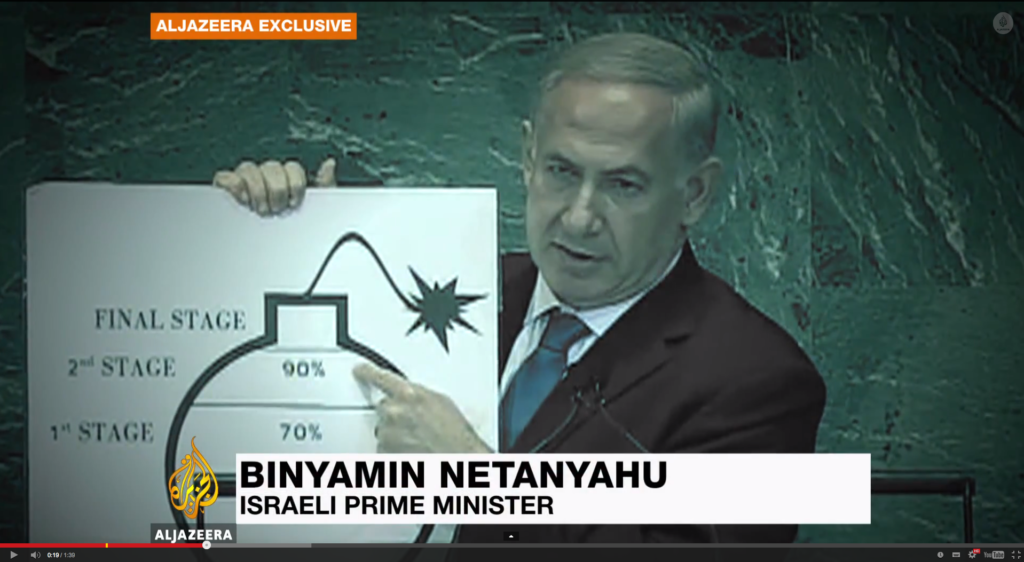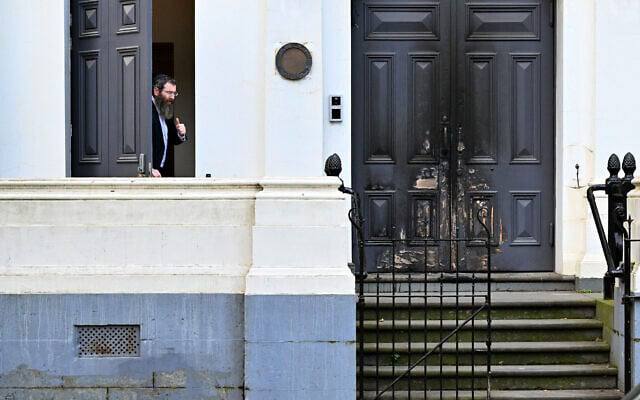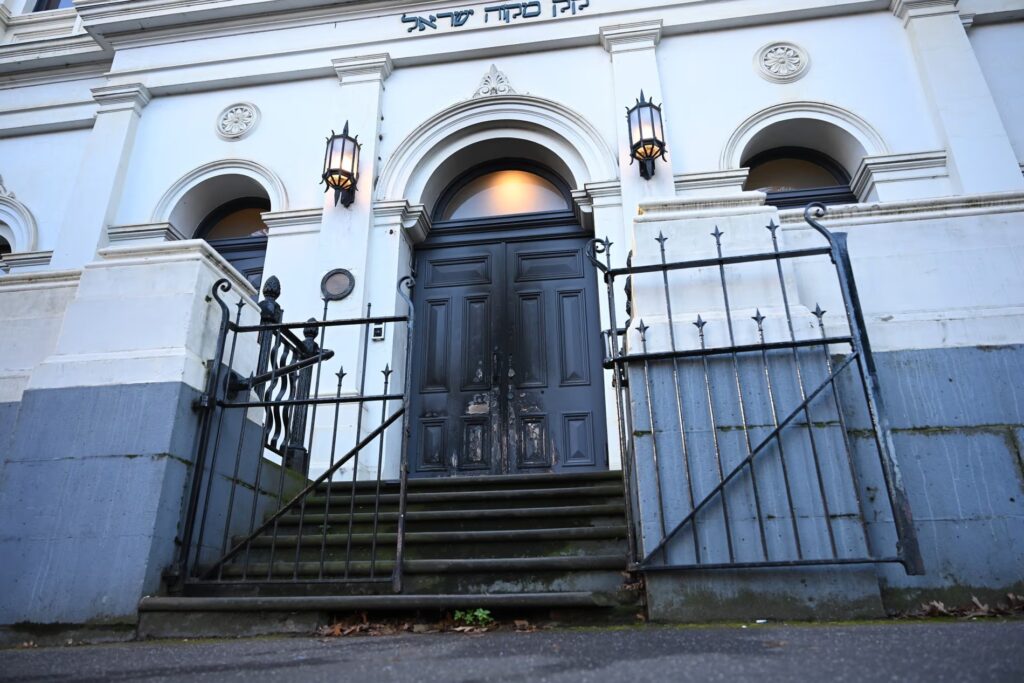UPDATES
As Al Jazeera slams Israel, ABC takes the bait
February 25, 2015 | Ahron Shapiro

Al Jazeera, owned and financed by Qatar, has shown on countless occasions that it reflects the biases and preferences of the authoritarian monarchy it serves. This includes both sympathy for Islamists and a disdain for Israel reflected in a tendency to present it in the worst possible light. (AIJAC’s Allon Lee blogged about this earlier this month, citing many other earlier examples)
Its anti-Israel bias is so rampant, so obvious that it should be apparent to just about everyone. Unfortunately, the ABC continues to utilise Al Jazeera as a source of reporting about Israel.
On Tuesday, ABC‘s reporter Michael Vincent fell into the trap, with the story “Leaked cables contradict Benjamin Netanyahu’s claim Iran was close to making nuclear bomb“.
The Al Jazeera story, which it released in partnership with the Guardian, claimed that South African intelligence had received information from the Mossad that showed that Israeli Prime Minister Binyamin Netanyahu had “contradicted” Israeli intelligence reports on Iran’s advancement towards a nuclear weapon. According to Al Jazeera, this information was eventually leaked to their organisation.
Citing the Al Jazeera/Guardian claim, Vincent wrote:
In a speech to the United Nations general assembly two years ago, Mr Netanyahu told world leaders that “the red line must be drawn on Iran’s nuclear enrichment program.”
He also brandished a diagram in the form of a lit bomb to indicate the advanced state of Tehran’s nuclear development effort.
“Iran’s completed the first stage. It took them many years but they completed it and they’re 70 per cent of the way there,” Mr Netanyahu said.
“Now they are well into the second stage. By next spring, at most by next summer, at current enrichment rates, they will have finished the medium enrichment and move onto the final stage.
“From there it’s only a few months, possibly a few weeks, before they get enough enriched uranium for the first bomb.”
But weeks after the speech, Mossad shared a report with South African intelligence which concluded Iran was “not performing the activity necessary to produce weapons,” according to the leaked cable.
The discrepancy, the paper said, “highlights the gulf between the public claims and rhetoric of top Israeli politicians and the assessments of Israel’s military and intelligence establishment.”
But had Netanyahu really contradicted the Mossad’s view in his speech? Reporting for the Jerusalem Post on Tuesday, Yossi Melman, an expert on Israeli intelligence, said he certainly hadn’t.
In his article “Al Jazeera’s release of ‘Mossad cables’ falls short“, Melman wrote:
After promising to release a bombshell of leaked secret Mossad cables, Al Jazeera’s publication of documents late Monday fell short of that mark.
As expected, Al Jazeera did not obtain an original and authentic document from the Mossad, Israel’s foreign espionage agency.
What they published was a South Africa State Security Agency (SSA) document that is based on a briefing given to them by the Mossad.
The document from 2013 contains no secrets and any reader, or follower of public reports on Iran’s nuclear program, especially the International Atomic Energy Agency (IAEA) is familiar with the facts written in that document.
The Mossad provided details in its briefing, such as the quantities of Iran’s enriched uranium at its two levels – 3.5 percent and 20% – about the development of Iran’s nuclear reactor at Arak, and its statement that Iran is “not performing the activity necessary to produce weapons.”
That assessment was correct – it isn’t possible to utilize fissile material for a bomb only with 20% enriched uranium – an enrichment of 93% is required – and Iran did not have it at the time of the document’s writing, and doesn’t have it now.
Certainly it doesn’t present any evidence of a wedge between the Mossad and Prime Minister Benjamin Netanyahu with regard to Iran’s nuclear program.
Melman reminded readers that Israeli-South African relations have become so cold – almost unfriendly – that it is extremely unlikely the Mossad would have given South African intelligence anything worth leaking. Melman did note that there are some differences of opinion between Netanyahu and some elements of the Israeli intelligence community, but not on the basic facts about what Iran is doing.
Meanwhile, in a blog on the website for the American magazine “The National Interest“, Editorial staffer John Allen Gay also found Al Jazeera‘s claims lacking.
Making nuclear weapons is complicated. A working warhead is the result of several distinct lines of technical development. You need enough enriched uranium to sustain a rapid chain reaction (the core of the bomb), and you need a way to induce that chain reaction (the mechanism of the bomb). (You’ll also probably want a way to deliver the bomb, a third line of technology.) Netanyahu’s argument rested on this distinction: he said that the world must draw a red line on Iran’s activities that could be useful for making a core because those activities are much harder to hide than those for making the mechanism…
Bibi was, in other words, not asserting that an Iranian nuclear device was coming soon-he was saying that Iran was approaching the end of the phase in which its nuclear program would be easiest to interrupt. The Mossad’s statement that Iran “is not performing the activity necessary to produce weapons” doesn’t contradict that, particularly when read with their line that Iran’s activities at the time would “reduce the time required to produce weapons from the time instruction is actually given.” Iran was taking steps that made weaponization easier, even if it wasn’t weaponizing. A closer reading of the speech, and a better understanding of the underlying technical issues, would have revealed the harmony between the two positions.
Also, at Commentary Magazine‘s website, Jonathan Tobin zeroed in on the timing of the story, concluding that the decision to break this story now, days before Netanyahu is scheduled to address Congress, was almost certainly deliberate:
…At this moment, damaging Netanyahu’s credibility, even if it means shading the truth or inventing a contradiction when there is none, has become vital for those who believe confronting Iran over its nuclear program is a mistake.
Meanwhile, in yet another example of bias on Monday, Al Jazeera published an unsubstantiated Palestinain claim that “Gazans flee floods caused by Israel’s dams opening”.
Only after a “tidal wave” of outrage from media watchdogs like CAMERA showing that no such Israeli dams exist and proving the flooding was the result of heavy rain alone, did Al Jazeera update the story somewhat – not by issuing a proper correction or clarification but merely by making Israel’s denial the headline: “Israel denies causing Gaza floods by opening dams”.
In contrast, the UK’s Daily Mail, which also ran its own version of the “dam” story based solely on Palestinian claims, did issue a full clarification, going on record with the irrefutable fact that no such dams exist. They wrote: “An earlier version of this article stated that Israel had opened river dams in the south of the country, causing flooding in the Gaza strip. In fact, there are no dams in southern Israel and the flooding was caused by rain and drainage issues. We are happy to clarify this.”
In any case, evidence of the original bias contained in Al Jazeera‘s initial story lives on in the story’s retained URL: “http://www.aljazeera.com/news/2015/02/gazans-flee-floods-caused-israel-dams-opening-150222115950849.html”
Furthermore, it’s important to realise that this was not the first occasion the Palestinians had made the allegation that Israel had ‘opened dams to flood Gaza’ had been disproven (such as in December 2013). A simple Google search would have revealed that to any journalist.
While there is no sign of Al Jazeera‘s “dam release” claim on ABC‘s website, given the ABC‘s almost-daily use of Al Jazeera as a source for news about Israel (particularly on its Newsradio channel), and the fact the story was also eventually picked up in one form or another by AFP, RT, Maan and Xinhua, one cannot discount the possibility it made it into a news report.
Ahron Shapiro
Update – February 27
On February 25, faced with the irrefutable facts, Al Jazeera retracted the dam article entirely, its the first Israel-related retraction in memory, and replaced it with the following statement:
Editor’s note: An earlier version of this page hosted an article which stated that Israel had, without warning, opened a number of dams, which had resulted in a part of Gaza being flooded.
This was false.
In southern Israel, there are no dams of the type which can be opened.
We apologise for this error.
Al Jazeera depends on objective reporting and strives to correct all errors of fact. We are committed to accountability and transparency.
We encourage our audience and others to identify and report our mistakes.
The retraction is, of course, welcome. Yet Al Jazeera‘s attempt at damage control to salvage its credibility cannot obscure the fact that it produces biased stories against Israel on a daily basis and, despite having their errors routinely exposed, rarely corrects them. Until that happens, Al Jazeera‘s statement about its commitment to objective reporting and accountability and transparency must be treated for what it plainly is – hollow spin.
Tags: Israel





